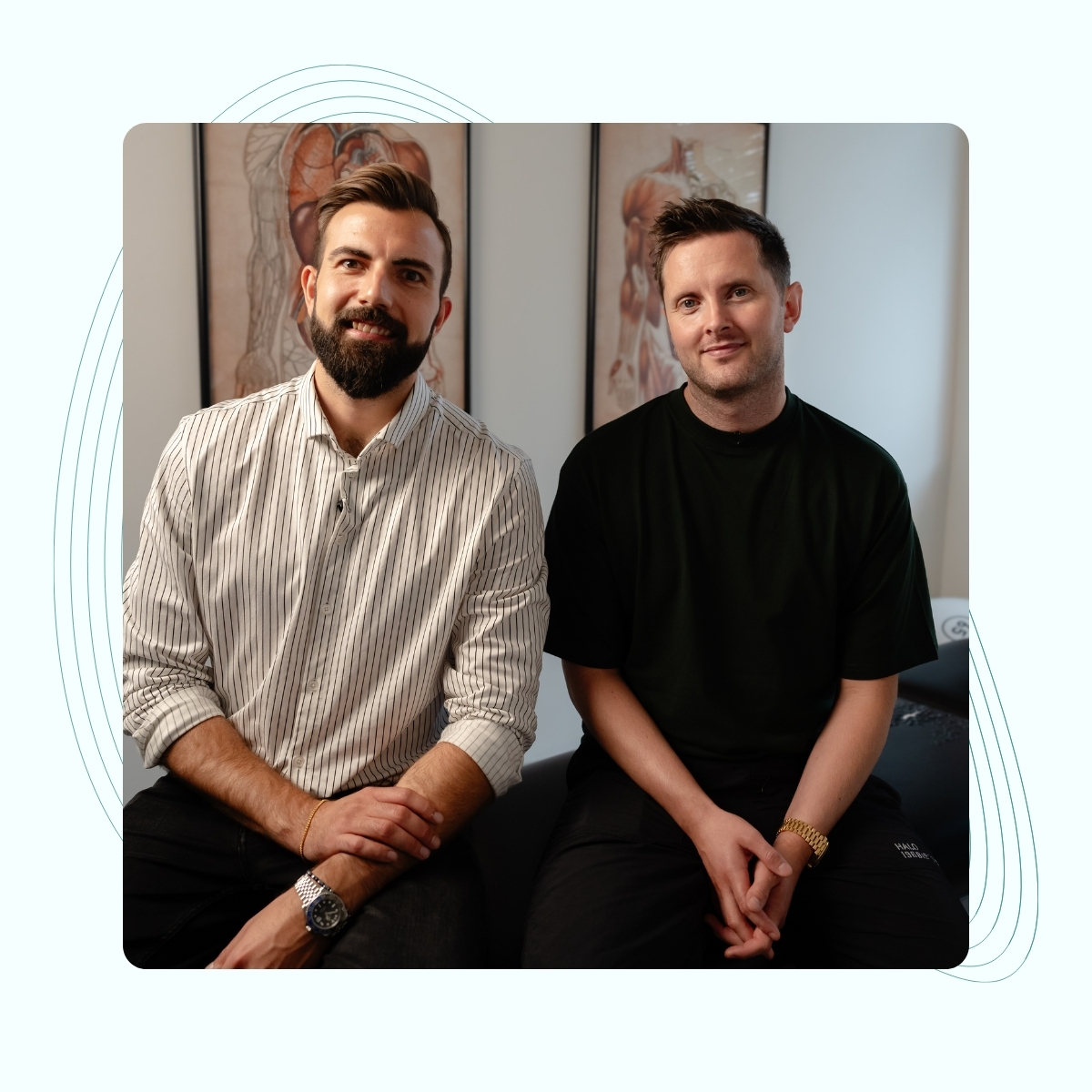What is the circadian rhythm?
Circadian rhythm refers to a series of biological processes in our bodies that follow a natural, internal clock of approximately 24 hours. These internal clocks are genetically encoded and coordinate a wide range of functions from sleep/wake cycles to hormone secretion, eating, digestion, and energy levels.
This rhythm is mainly controlled by a part of the brain called the suprachiasmatic nucleus (SCN), which is located in the hypothalamus. The SCN receives direct input from the eyes and uses this information to synchronize the body’s functions with the light and dark cycles of the day.
This is essential for our survival and health, as it ensures that our bodies function optimally during the day and rest at night. (Source: Sundhed. dk).
Biochemical signaling substances
The SCN influences the production of various hormones and neurotransmitters that signal the body when it is time to be active and when it is time to rest. The best known of these hormones is melatonin, which is often called the “hormone of darkness” because of its role in promoting sleep. Melatonin levels rise in the evening to prepare the body for sleep and fall in the morning to promote wakefulness.
Adaptation to the environment
A well-functioning circadian rhythm is essential for our physical and mental health, as it helps regulate sleep quality, mood, appetite and metabolism.
Disruptions in the circadian rhythm, which can be caused by changing work hours, traveling across time zones, or exposure to irregular light patterns, can lead to a number of health problems including sleep disorders, depressive symptoms, diabetes, and obesity.
By understanding and respecting this complex and dynamic biological rhythm, we can make better decisions about our daily habits and surroundings that promote a healthier lifestyle and overall well-being.
The importance of light
Light is the strongest signal that influences our circadian rhythm. Exposure to natural daylight in the morning helps to ‘reset’ our internal clock, thus promoting wakefulness and energy – conversely, the onset of darkness signals that it is time to prepare for sleep, stimulating the production of the sleep hormone melatonin (Source: National Library of Medicine).
Sunrise and energy: When the eyes detect morning light, they send signals to the brain to lower melatonin production and increase the production of cortisol and other invigorating hormones.
Sunset and rest: At dusk and as darkness descends, the lack of light signals to the brain that it is time to increase melatonin production, helping us feel sleepy and ready to go to bed.
The effects of artificial screen light
While natural light plays a crucial role in regulating the circadian rhythm, the widespread use of artificial light, especially after dark, has introduced a number of challenges to our biological clocks. Artificial light, including light from light bulbs in the home and screens from electronic devices, can disrupt the natural rhythm of light and darkness that our circadian system relies on (Source: Sundhedsstyrelsen).
Blue light and sleep disorders
It is especially the blue light emitted by smartphones, tablets, computers and some types of LED lighting that can have a disruptive effect, as blue light is particularly potent at suppressing the production of melatonin more than any other light.
This means that using these devices before bed can reduce sleep quality by making it harder to fall asleep as well as by disrupting sleep quality.
Long-term health effects
Consistent exposure to high levels of artificial light, especially in the evening, has also been linked to long-term health problems. Research has indicated that it not only affects sleep quality, but can also increase the risk of serious conditions such as heart disease, obesity, and even certain types of cancer.
These risks are believed to stem from the disrupted production of melatonin and the subsequent effects on the body’s other hormonal and metabolic processes. (Source: National Heart, Lung, and Blood Institute).
Strategies to reduce the effects
To minimize the negative effects of artificial light, it is recommended to use “night mode” settings on devices that reduce the amount of blue light, or use apps that can change the color tones of the screen according to the time of day. At home, you can also consider switching to bulbs that can emit warmer tones, especially in the hours leading up to bedtime.
Do you find that you never feel refreshed regardless of the amount and quality of sleep?
Tips to improve your circadian rhythm
Optimizing your circadian rhythm is not only good for your sleep quality but also for your overall health and well-being. Here are some improved strategies you can implement to help you do just that: (Source: Cleveland Clinic):
1. Maximize daylight exposure: Make sure you get plenty of natural light, especially in the morning. This can be as simple as taking a morning walk or making sure your workplace or home is well-lit with natural light. Natural light in the morning helps suppress melatonin production, making you more alert and preparing your body for the day’s activities.
2. Regulate artificial light: Use screen settings that reduce blue light in the evening and consider investing in smart bulbs that can be set to change color temperature based on the time of day. These measures can help reduce the negative impact of blue light on your circadian rhythm.
3. Create a consistent sleep schedule: Try to go to bed and wake up at the same time every day, even on weekends. This helps reinforce your body’s internal clock and makes it easier to fall asleep and wake up naturally.
4. Consider light therapy: If you don’t have access to enough natural light, a light therapy lamp can be an effective solution, especially during the darker winter months. These lamps, which emit light without harmful UV light, can be used in the morning to help adjust your circadian rhythm.
5. Minimize stress: Since stress can disrupt your circadian rhythm, stress management techniques like meditation, yoga, and regular physical activity can be very helpful. These activities can reduce stress and promote better sleep.
6. Eat on a regular schedule: Eating meals at roughly the same times each day can also help support your body’s cycle – also avoid heavy meals right before bed as this can disrupt your sleep.




